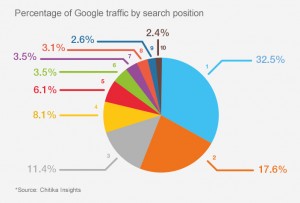Marketing automation software can help small businesses streamline marketing, enhance customer engagement and drive growth.
Marketing automation isn’t just for enterprises with endless budgets. Marketing automation software for small business provides many of the same benefits as their enterprise counterparts. The big difference is that small business platforms are streamlined and more affordable.
Increasingly, marketing automation is a must-have for small business so they can carry out marketing functions with a limited staff and budget. Marketing automation makes tasks like email marketing and social media posting efficient and scalable. Personalization using these tools improves customer engagement. These platforms also can use demographic data to generate and nurture qualified leads — key to driving growth for any organization.
Understanding marketing automation for small business
Marketing automation has several common benefits for any small business, especially for lead generation.
Marketing automation platforms make it easy for the small business to embed lead forms in a website, and automatically send Thank You messages and other communications to those who fill out the form.
From there, marketing automation tools capture and nurture the lead. They can assign the leads to an email nurture cadence, moving the prospect down the funnel. These tools can also score the lead based on engagement with emails and the website.
By using a single marketing automation platform, multi-channel campaigns (website, email, social media and mobile, for instance) can be coordinated seamlessly.
Additionally, separate teams like marketing and sales are aligned because leads will be handed over from marketing to sales once they reach a certain score.
In many marketing automation tools for small business, organizations can also use personalization and targeted messaging to boost conversion rates. When all of these tasks are automated, a business of any size will save time and drive up its ROI.
Among the top marketing automation tools for small business are:
- Constant Contact
- Mailchimp
- Keap
- Klaviyo
- Drip
- Brevo (formerly Sendinblue)
- GetResponse
Selecting the right marketing automation software
Many marketing automation platforms offer small business-specific features. To find the right one for your organization, take into account the flexibility of the platform and your business’s unique needs.
Does the platform have the infrastructure necessary to grow in size as the small business scales up its program? If your business prefers not to have to replace marketing automation tools in the future, the ability to grow with the business is an important factor right out of the gate.
It’s also important to consider the tool’s ability to provide customized options for automation. For instance, your small business might depend heavily on scheduling an in-store appointment. Does the platform make it easy to do that? Think about your business’s specific needs.
Additionally, if the small business is new to marketing automation, the platform must be easy to use and implement. A small business can’t afford much downtime when it sets up new technology.
And think about the small business staff — their abilities and skill sets. Is the platform easy enough to learn, and can it onboard new users painlessly?
Finally, don’t forget to take a look at the marketing automation tool’s integrations. Will the tool connect with any existing systems at the small business? You don’t want to have to replace your entire martech stack because of a new marketing automation platform. And even if your small business isn’t using a lot of technology currently, you’ll want to get a sense of what tools the new platform will work with down the road as the business matures.
Key considerations for small business professionals
1. Budget and Pricing Models
Pricing models for marketing automation platforms vary. Make sure first that the pricing model for a platform is clear. Then you can determine if the price fits into your small business marketing budget.
Additionally, the price might go up if the business grows. For instance, if the vendor charges per customer account, the software will get expensive as the program and the business expand.
Also, be sure to keep in mind what marketing automation features and functionality your small business desires. Will certain features drive up the price, if a vendor includes added charges for those features? Only when you’re aware of all the costs will you be able to see if it fits in the budget.
2. Customer Support and Training
For marketing automation to be affordable for a small business, the vendor might provide only a limited amount of training resources and assistance.
Make sure to ask about the level of support provided in any marketing automation software package. What support is included in the price? Is help available 24/7 in case the system goes down?
Have a look at the vendor’s website and get a sense of the training resources, FAQs and help request forms that it provides for self-help and guided assistance.
Taking all of these factors into account, your small business will be able to find the right marketing automation platform that fits your marketing budget. With the right system in place, leads and other marketing functions can scale up and grow ROI efficiently while aligning marketing and sales teams.
The post Marketing automation software for small business: How to get started appeared first on MarTech.
MarTech(24)
Report Post







